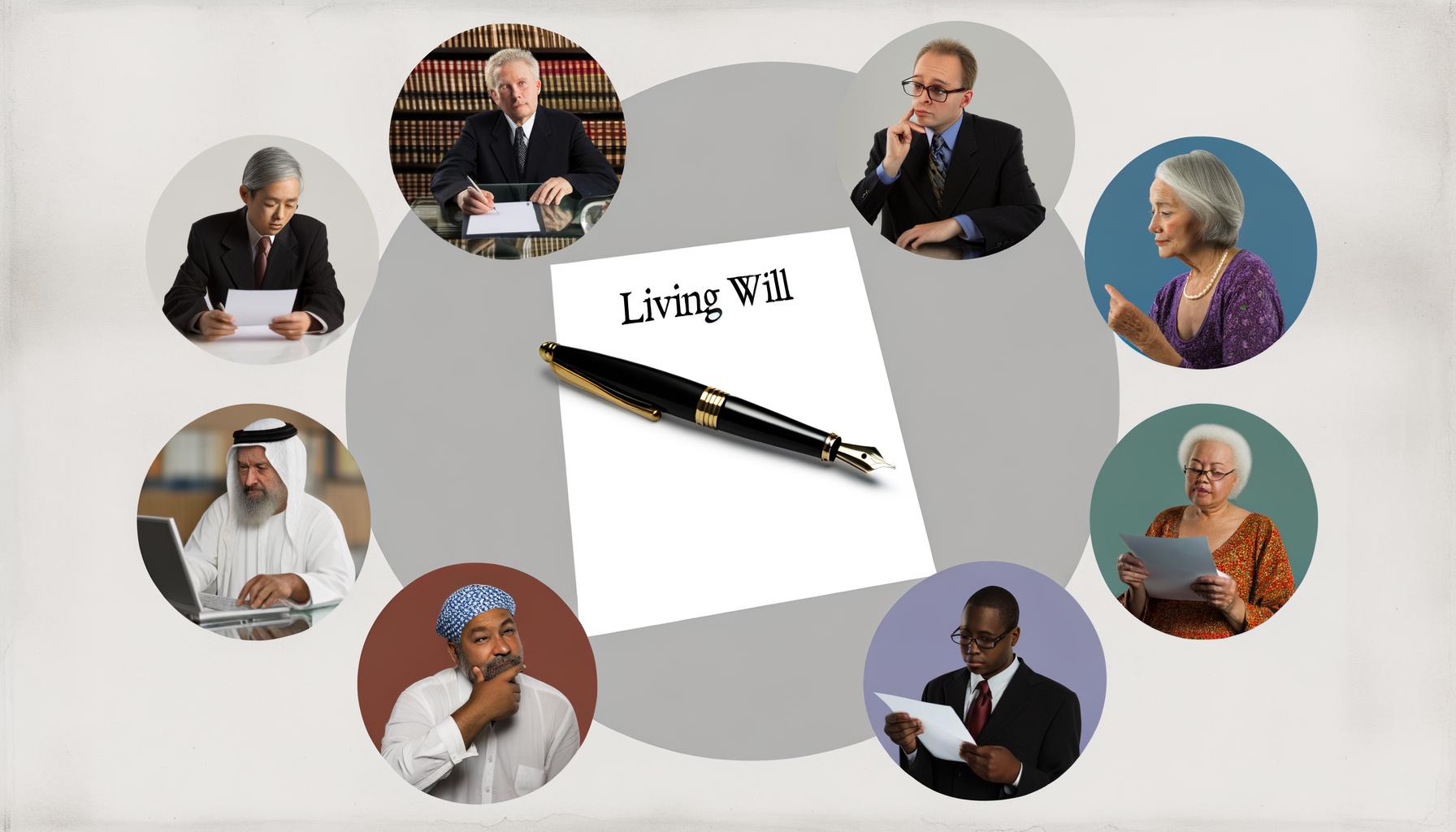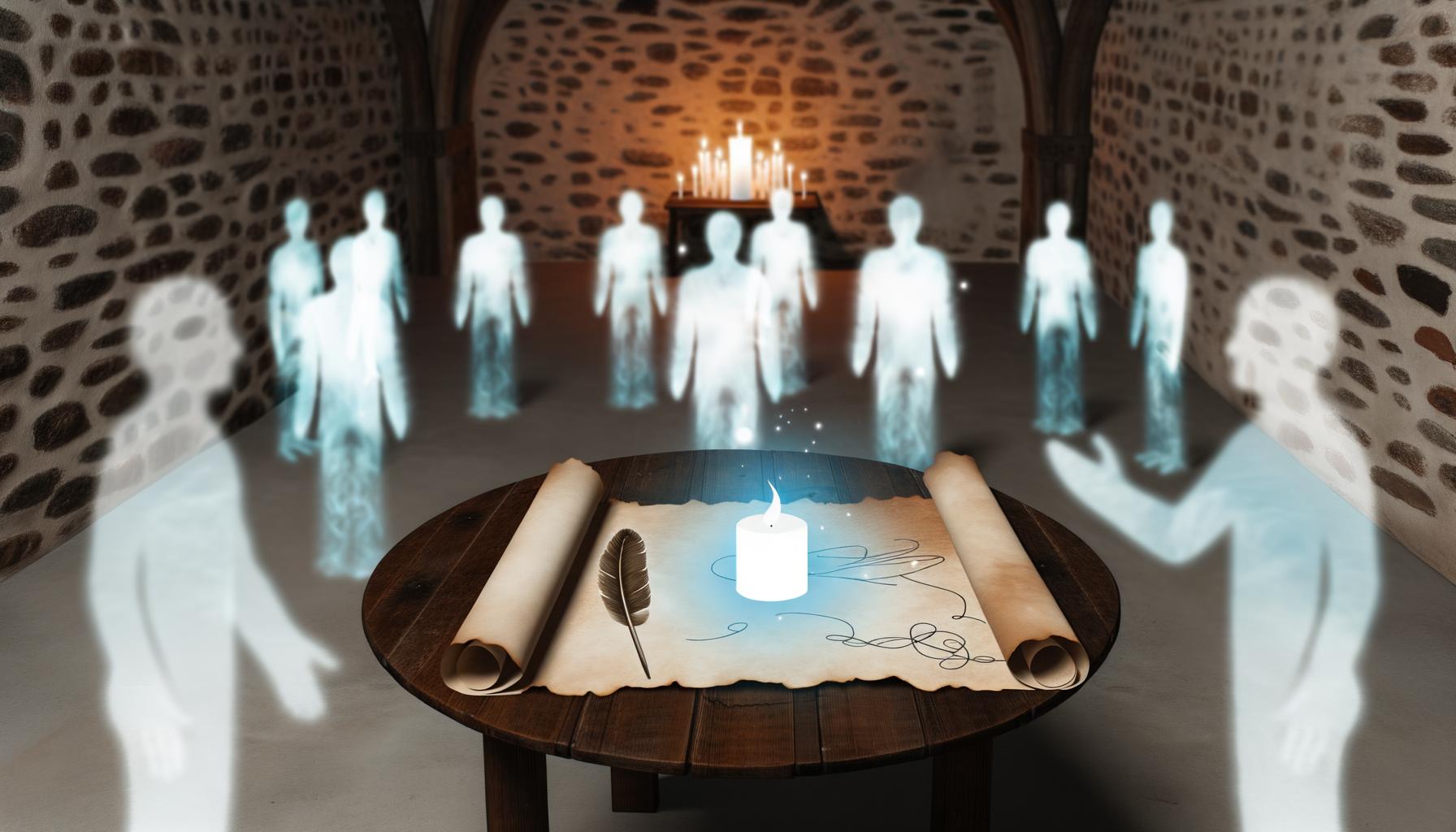Navigating the complexities of healthcare decisions can be challenging, especially when faced with unexpected medical crises. Living wills serve as a beacon of clarity in these situations, ensuring that an individual’s medical preferences are respected and followed even when they are unable to communicate them personally. This legal document spells out one’s wishes regarding life-sustaining treatments and other critical healthcare choices, providing essential guidance for both family members and healthcare providers.
The primary purpose of living wills is to provide clear directives about the types of medical care one desires or wishes to refuse during severe illness or incapacitation. This becomes particularly crucial in context-heavy environments like hospitals, where timely decisions about treatment can significantly impact outcomes. For residents of Aliso Viejo, having a living will is not just a matter of personal health autonomy but also an essential step towards safeguarding one’s values and beliefs in medical scenarios.
In Aliso Viejo, where community values emphasize thoughtful planning and quality healthcare, the importance of having a living will cannot be overstated. With its unique demographic makeup and proactive approach to well-being, this Southern California community benefits immensely from the peace of mind that living wills offer. These documents help bridge potential gaps between patient intentions and the realities faced by healthcare professionals and families during critical moments, thus reinforcing the significance of advance directives within this vibrant locale.
Understanding the Legal Framework in California
Understanding the legal framework surrounding living wills in California is crucial for residents of Aliso Viejo. California recognizes living wills under the broader category of Advanced Health Care Directives (AHCDs). This legal document allows individuals to outline their preferences regarding medical treatment and end-of-life care, ensuring that their wishes are respected when they cannot communicate them personally. Living wills must comply with state-specific regulations to be legally valid and enforceable.
California’s laws mandate that a living will, or an Advanced Health Care Directive, must be signed by the declarant (the person creating the document) and either notarized or witnessed by two adults who are not named as agents in the directive. This stringent requirement ensures that there is no conflict of interest and that the document reflects the genuine wishes of the declarant.
For residents of Aliso Viejo, it’s important to work closely with local attorneys or healthcare providers familiar with these regulations to ensure everything is correctly executed.
Local authorities such as hospitals and healthcare providers play a significant role in implementing these directives. They are required to follow protocols ensuring that patients’ living wills are respected once they have been documented properly. Healthcare institutions in Aliso Viejo often offer resources and consultations for those looking to create or update their living wills. Furthermore, local legal firms specialize in estate planning services, providing guidance tailored to state laws and individual needs.
| Document Requirements | Details |
|---|---|
| Signature | Must be signed by the declarant |
| Notarization/Witnesses | Either notarized or witnessed by two adults not named as agents |
| Compliance | Must adhere to state-specific regulations |
By understanding this legal groundwork, residents can take proactive steps toward drafting an effective living will that holds up under California law. Recognizing the importance of timely documentation helps prevent potential disputes or delays in medical care when decisive action is most needed. Accessing local resources further ensures compliance and peace of mind for all parties involved.
Benefits of Having a Living Will
One of the primary benefits of having a living will is that it ensures your medical preferences are honored, even if you’re unable to communicate them yourself. By clearly outlining your wishes regarding life-sustaining treatments, you maintain control over decisions such as whether to receive artificial hydration and nutrition, mechanical ventilation, or resuscitation efforts.
This can be particularly important in scenarios where differing opinions may arise among family members or healthcare providers about the best course of action. Having a legally binding document eliminates ambiguity and helps ensure that medical teams abide by your directives.

Another significant advantage is the reduction of stress for family members during critical times. When faced with a loved one experiencing a severe medical emergency or terminal condition, families can find it exceedingly difficult to make objective decisions about their care.
A living will essentially lifts this emotional burden from their shoulders by providing clear instructions on what should be done according to your preferences. This not only eases their emotional strain but also helps prevent potential conflicts among relatives who might have differing views on what they believe is best for you.
Living wills also play an essential role in avoiding legal disputes and delays in medical care. In the absence of a living will, disagreements among family members or between families and healthcare providers about the proper course of action can lead to prolonged legal battles.
These disputes can delay critical medical interventions or result in unwanted treatments being administered. By having a well-documented living will in place, you preempt these complications by stipulating exactly what measures should be taken under various circumstances:
- Cardiopulmonary resuscitation (CPR)
- Mechanical ventilation
- Tube feeding
- Dialysis
- Comfort (palliative) care
Additionally, specifying these details offers clarity and direction, streamlining the decision-making process for everyone involved.
Steps to Create a Living Will in Aliso Viejo
Creating a living will in Aliso Viejo is a crucial step in ensuring that your healthcare preferences are followed should you become incapacitated. However, knowing the right time and essential elements to include can make this process smoother and less stressful. It’s important to start early-ideally when you’re still healthy and can make sound judgments about your medical future.
The first step in creating a living will is to decide on an appropriate time to start. While many people delay this until they encounter health concerns, it’s advisable to create one while you’re still healthy. This allows you to make clear decisions without the influence of illness or pressure from impending medical procedures. Essentially, if you’re over 18 and of sound mind, it’s never too early to get started on your living will.
Key components that should be included in a living will are vital for its effectiveness:
– *Medical treatment preferences*: Specify what types of medical treatments you do or do not want, such as life-sustaining interventions like mechanical ventilation or tube feeding.
– *Pain management guidelines*: Include instructions on how pain relief should be managed.
– *Organ donation choices*: Clearly state whether or not you wish to donate your organs after death.
Properly documenting and storing your living will is just as important as creating it. Once completed, ensure that copies are provided to crucial parties including your primary healthcare provider, chosen family members, and any legal advisors involved in your estate planning. Additionally, keep the original document in a safe yet accessible place where it can be quickly retrieved if needed. Digital storage solutions can also serve as backups but aren’t substitutes for having physical copies available for emergency situations.
Taking these steps makes sure that your wishes regarding medical care are honored when you aren’t able to communicate them yourself. Living wills safeguard both personal healthcare decisions and offer peace of mind to loved ones dealing with difficult circumstances.
Common Misconceptions About Living Wills
Myths vs. Facts: Clarifying Common Misunderstandings
A widespread misconception is that a living will can only be created by older adults or those facing serious illnesses. In reality, anyone over the age of 18 can and should consider drafting a living will.
Life is unpredictable, and having documented instructions ensures that your healthcare preferences are respected regardless of age or current health status. Another myth is that living wills are complicated legal documents that require extensive legal experience to prepare, but in truth, living wills are straightforward to draft with the right guidance and resources.

Addressing Concerns and Frequently Asked Questions
Many residents of Aliso Viejo express concerns about the flexibility of living wills. They worry about scenarios where their wishes might change due to evolving personal beliefs or medical advancements. It’s important to note that living wills are not set in stone; they can be updated as frequently as necessary to reflect any changes in your preferences simply by following proper legal protocols.
Additionally, some people mistakenly believe that having a living will means they won’t receive life-saving treatments if an unexpected emergency occurs. However, living wills address specific situations typically related to terminal conditions or irreversible unconsciousness, allowing for comprehensive care directives tailored to various circumstances.
Real-Life Examples From Aliso Viejo Residents
To illustrate the importance and efficacy of having a living will, consider Jane Doe from Aliso Viejo, who created her living will after becoming aware of its benefits during a community workshop. When Jane faced a sudden medical crisis last year, her family was initially overwhelmed but found solace in knowing her exact wishes were clearly outlined in her living will.
This document not only ensured she received the care she desired but also significantly reduced emotional and decision-making stress on her loved ones during such a critical time. Real-life examples like these highlight how proactive planning through creating a living will empower individuals and their families with peace of mind and clarity when it matters most.
The Role of Healthcare Directives and Power of Attorney
Advance directives, including living wills, are crucial components of comprehensive end-of-life planning. Unlike other forms of advance directives, a living will specifically documents an individual’s preferences for medical treatment in situations where they may be unable to communicate their decisions. This ensures that healthcare providers and family members are aware of the person’s wishes regarding life-sustaining treatments and other critical care choices.
Appointing a durable power of attorney for healthcare is another vital aspect of advance planning. A durable power of attorney allows you to designate someone trustworthy to make healthcare decisions on your behalf if you become incapacitated. This appointed individual can consult your living will-if one is available-and ensure that your medical preferences are followed precisely, thus preventing misunderstandings and potential conflicts among family members or healthcare providers.
Ensuring comprehensive end-of-life planning involves not only creating a living will but also incorporating other healthcare directives such as “Do Not Resuscitate” (DNR) orders or organ donation preferences. Combining these various elements provides a holistic approach that covers all facets of end-of-life care, safeguarding against unwanted medical interventions and aligning the provided care with the individual’s values and desires.
| Aspect | Description |
|---|---|
| Living Will | Documents specific medical treatment preferences. |
| Durable Power of Attorney | Appoints someone to make healthcare decisions if incapacitated. |
| DNR Orders | Specifies whether or not to perform CPR in case of cardiac arrest. |
Resources and Legal Assistance in Aliso Viejo
Local Legal Firms Specializing in Living Wills and Estate Planning
Residents of Aliso Viejo looking to create a living will can benefit from the expertise of local legal firms specializing in estate planning. These firms offer comprehensive services that cater to the specific needs of individuals seeking to safeguard their medical and end-of-life preferences.
Firms such as Aliso Viejo Legal Counsel and South County Estate Planning have a proven track record in drafting clear, legally binding living wills. Engaging with experienced attorneys ensures that all critical aspects are thoroughly addressed according to California state laws, minimizing potential for future disputes or ambiguities.
Community Resources and Educational Workshops
Aliso Viejo offers various community resources aimed at educating residents about the importance of living wills. The city’s community centers often host workshops and seminars featuring legal experts and healthcare professionals. These events provide valuable insights into the nuances of creating effective living wills, as well as answering common questions and dispelling myths associated with them. Additionally, local libraries frequently hold informational sessions where residents can learn more about formulating their wishes for medical care in advance.

Online Tools and Templates for Creating a Living Will
In today’s digital age, numerous online resources are available to assist Aliso Viejo residents in creating living wills. Websites like LegalZoom and Nolo offer user-friendly templates tailored to comply with California’s legal requirements. These tools guide individuals through each step of the process, ensuring all essential components are included in the document.
For those who prefer a more personalized approach, some platforms also provide access to consultations with licensed attorneys via video calls or chat services. Utilizing these online resources can be a cost-effective way for individuals to take proactive steps toward securing their medical directives seamlessly.
Conclusion
In conclusion, the establishment of living wills is a crucial step towards peace of mind for residents of Aliso Viejo. These legally binding documents ensure that your medical preferences are respected, providing clarity and guidance during times when you may be unable to communicate your wishes. Beyond the personal benefits, having a living will also alleviates the emotional burden on your loved ones, sparing them from making agonizing decisions during moments of crisis.
Taking proactive steps to create a living will not only aligns with California’s legal framework but also underscores the significance of comprehensive end-of-life planning. By involving local legal authorities and healthcare providers, residents can rest assured that their directives will be honored in accordance with state laws. It’s essential for individuals to recognize that this isn’t just a matter of legal documentation; it’s about ensuring dignity, control, and respect during critical medical conditions.
For those in Aliso Viejo ready to embark on this journey, numerous resources are available-from specialized legal firms and community workshops to online tools that simplify the process. Initiating the conversation today about living wills can pave the way towards a future where your health care choices are clearly defined and respected. Embrace this opportunity to take control of your health care destiny and offer peace of mind for yourself and those you cherish most.
Frequently Asked Questions
What Is the Main Disadvantage of a Living Will?
The main disadvantage of a living will is its potential lack of specificity, which can lead to ambiguity and misinterpretation of the patient’s wishes. Medical situations can be complex and nuanced, and it might be challenging to capture every possible scenario in one document.
As a result, healthcare providers or family members could struggle to understand precisely what the individual would have wanted in an unanticipated medical situation.
What Is the Primary Purpose of a Living Will?
The primary purpose of a living will is to provide clear instructions regarding an individual’s preferences for medical treatment in case they become incapacitated and unable to communicate their decisions.
This legal document aims to guide healthcare professionals and loved ones in making medical decisions that align with the patient’s values and desires, ensuring that their end-of-life care preferences are respected.
What Is One of the Major Issues With Living Wills?
One of the major issues with living wills is that they can become outdated as medical technology advances or as personal circumstances change. A living will created years ago might not reflect current best practices in medicine or shifts in the person’s health status or personal beliefs about end-of-life care.
Regular updates are necessary but often overlooked, leading to potential conflicts between dated directives and modern medical capabilities.
Is a Living Will a Good Idea?
A living will is generally considered a good idea because it helps ensure that an individual’s medical treatment preferences are honored if they cannot communicate them personally. It provides peace of mind knowing that one’s wishes are documented and offers guidance to loved ones tasked with making difficult decisions during emotionally stressful times.
Despite its limitations, having a living will can prevent misunderstandings and disputes over the patient’s care.
What Is the Most Common Statement in a Living Will?
The most common statement in a living will typically involves directives about life-sustaining treatments such as mechanical ventilation, resuscitation, artificial nutrition, and hydration.
Many individuals specify whether they wish to receive or refuse such interventions if they are terminally ill or in a persistent vegetative state with no reasonable expectation of recovery, aiming to avoid prolonged suffering or diminished quality of life.

